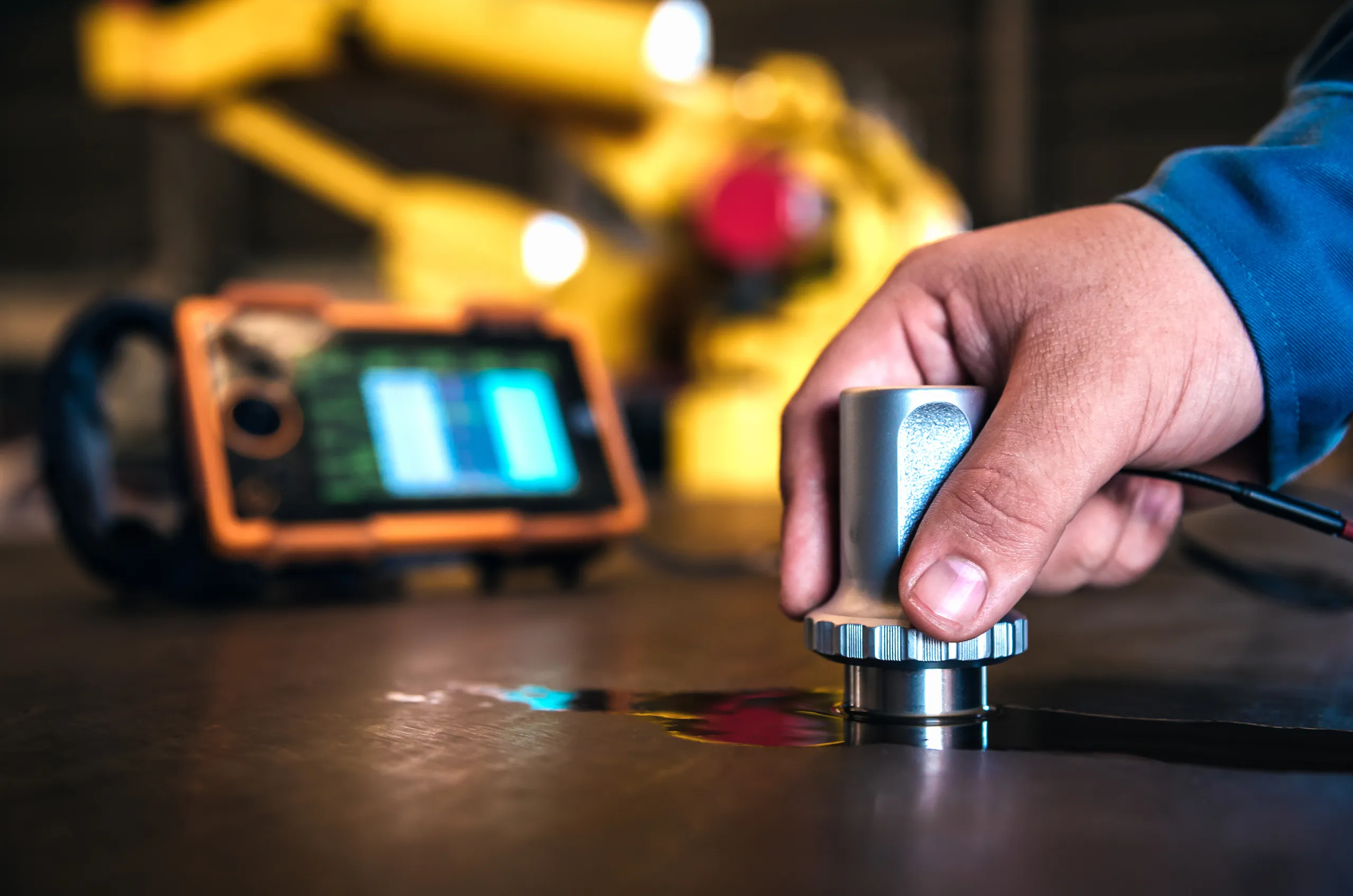JIS Z2344 Penetrant Non Destructive Testing of Automotive Materials
The JIS Z2344 standard is widely recognized and utilized in the automotive industry for non-destructive testing (NDT) using penetrant inspection methods. This technique allows for the detection of surface-breaking defects by applying a colored or fluorescent liquid to the material's surface, which is then drawn into any present flaws under capillary action.
The process involves several key steps: pre-cleaning, application of the penetrant, waiting time for the penetrant to seep into defects, drying, removing excess penetrant, applying developer, and finally examining the specimen. Post-inspection, any remaining penetrant in flaws is drawn out by capillary action, making it visible against a contrasting background.
Automotive materials such as steel, aluminum, and cast iron are commonly tested using JIS Z2344 due to their critical role in ensuring the durability and safety of vehicles. The stringent requirements for these materials demand thorough inspection methods like penetrant testing, which can identify flaws without compromising structural integrity.
The automotive sector places a high value on quality control processes that ensure the reliability of its products. Non-destructive testing plays an essential role in this regard by providing precise and reliable assessments of material integrity before production or usage. This ensures that any defects are addressed early, preventing costly rework or product recalls.
The standard covers various types of defects including cracks, porosity, and incomplete fusion. It specifies detailed procedures for the application, development, and evaluation phases of penetrant testing. Compliance with JIS Z2344 is critical as it helps manufacturers meet international quality standards and ensures that their products are safe and reliable.
The implementation of this standard contributes significantly to enhancing customer satisfaction by ensuring product quality and safety. By adhering to such rigorous testing protocols, automotive companies can build trust among consumers who value the reliability and longevity of their vehicles.
Quality and Reliability Assurance
The JIS Z2344 penetrant non-destructive testing method is crucial for maintaining high levels of quality and reliability in automotive materials. This standard ensures that every component subjected to this test meets specific criteria, thereby enhancing overall product performance.
By following the outlined procedures meticulously, manufacturers can identify potential issues early on, allowing them to address these concerns promptly. Early detection of flaws not only improves safety but also reduces production costs associated with scrapping defective parts or reworking entire assemblies.
The reliability assurance provided by JIS Z2344 extends beyond just the materials used in manufacturing; it encompasses the entire lifecycle of automotive products from design through to final assembly. This comprehensive approach helps maintain consistent quality standards across all stages, ensuring that customers receive reliable and safe vehicles.
Compliance with this standard fosters trust between manufacturers and their clients, creating a positive reputation for the brand in question. Consumers are more likely to choose products from reputable companies known for producing high-quality goods consistently over time.
Customer Impact and Satisfaction
The application of JIS Z2344 penetrant non-destructive testing methods has a direct positive impact on both the quality and satisfaction levels of automotive customers. By adhering to this international standard, manufacturers can ensure that their products meet stringent safety and performance requirements.
Customers benefit from safer vehicles with fewer defects, leading to increased confidence in brand loyalty. This enhanced reputation translates into higher customer satisfaction ratings, which are vital for maintaining a competitive edge in today’s market environment.
In addition to improved quality assurance processes, the use of advanced testing techniques like JIS Z2344 helps reduce warranty claims and recalls. These measures contribute significantly towards reducing operational costs while simultaneously improving brand perception among end-users.
Ultimately, by prioritizing compliance with international standards such as JIS Z2344, automotive companies demonstrate their commitment to excellence in every aspect of production, ultimately fostering long-term relationships built on trust and reliability.
Use Cases and Application Examples
| Component Type | Description | JIS Z2344 Application |
|---|---|---|
| Steel Plate | A large structural component used in various parts of a vehicle. | This component requires thorough inspection for cracks, porosity, and incomplete fusion defects which could affect its strength and durability. |
| Casting Alloy | Used for manufacturing engine blocks and other critical components. | Injection casting alloys need to be tested to detect any internal or external flaws that might compromise their structural integrity. |
| Forged Parts | Forged components like axles, wheels, and suspension parts are subjected to significant stress during operation. | Penetration testing verifies the absence of surface-breaking defects that could lead to premature failure under load. |
| Bolts and Screws | Fasteners used in assembly require tight tolerances to ensure secure connections. | Penetrant testing ensures there are no cracks or other defects that could weaken the fastener over time. |
The above table provides a few examples of how JIS Z2344 penetrant non-destructive testing is applied across different types of automotive components. Each type has unique requirements based on its function within the vehicle, but all benefit from this rigorous inspection process.





